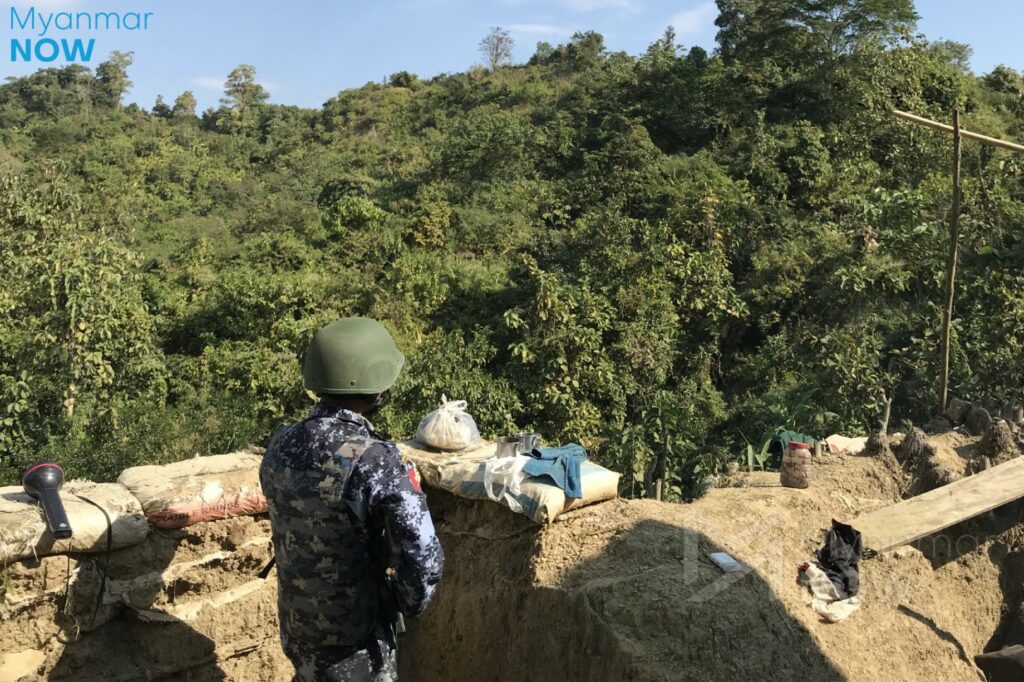Myanmar’s rights commission failing to act on ‘atrocity crimes’ in Rakhine state, say advocates

Commission has not taken action on killing of children and burning of villages, coalition of rights groups says
Myanmar’s national human rights body has failed to act on the killing of children and the burning of villages in Rakhine state and must be reformed, a coalition of local charities and rights groups has said.
The Myanmar military has been accused of burning down 190 houses in two villages in Kyauktaw on September 3 and of killing two children with airstrikes in Myebon on September 8.
But the Myanmar National Human Rights Commission (MNHRC) has not acted on these cases, according to the CSO Working Group on MNHRC reform.
“The Working Group is greatly disappointed to learn that the MNHRC is not taking any action,” the group said in a statement on Wednesday.
“The MNHRC remains silent over ongoing grave human rights violations in conflict-affected areas, especially in Rakhine State,” said Lway Poe Kamaekhour from the Ta’ang Women’s Organization, one of the group’s members.
“People in Rakhine are severely suffering from atrocity crimes such as arbitrary killings, the burning of villages and forced displacement committed by the Myanmar military. But the military’s perpetrators
Hla Myint, MNHRC’s chair, told Myanmar Now he is aware of the group’s statement criticising the commission.
The commission has received a total of 18 complaints from Rakhine and referred those concerning the military to the defense ministry, he said, which said it had reported the cases to the President’s Office.
The commission would not neglect any complaints, he added.
The military’s True News Information Team did not answer calls seeking comment.
In July the group made a submission to the United Nations’ Universal Periodic Review, an appraisal of the human rights records of UN member states.
The submission said the MNHRC’s commissioners had ties to the military and their appointments were not transparent.
It also said the commission was not properly funded and financially independent, and that it had done a bad job monitoring conflict, prisons and other detention centers, and protecting human rights defenders.
“While the MNHRC has been operational nearly ten years, it continues to suffer from a public confidence deficit and lacks legitimacy,” said Thet Thet Aung from the Future Light Center, another member of the group.
“Countries at the UN review should urge Myanmar to immediately reform the MNHRC so that it is in line with the Paris Principles,” said Bo Bo from Generation Wave, referring to international guidance on how countries should run effective human rights bodies.

